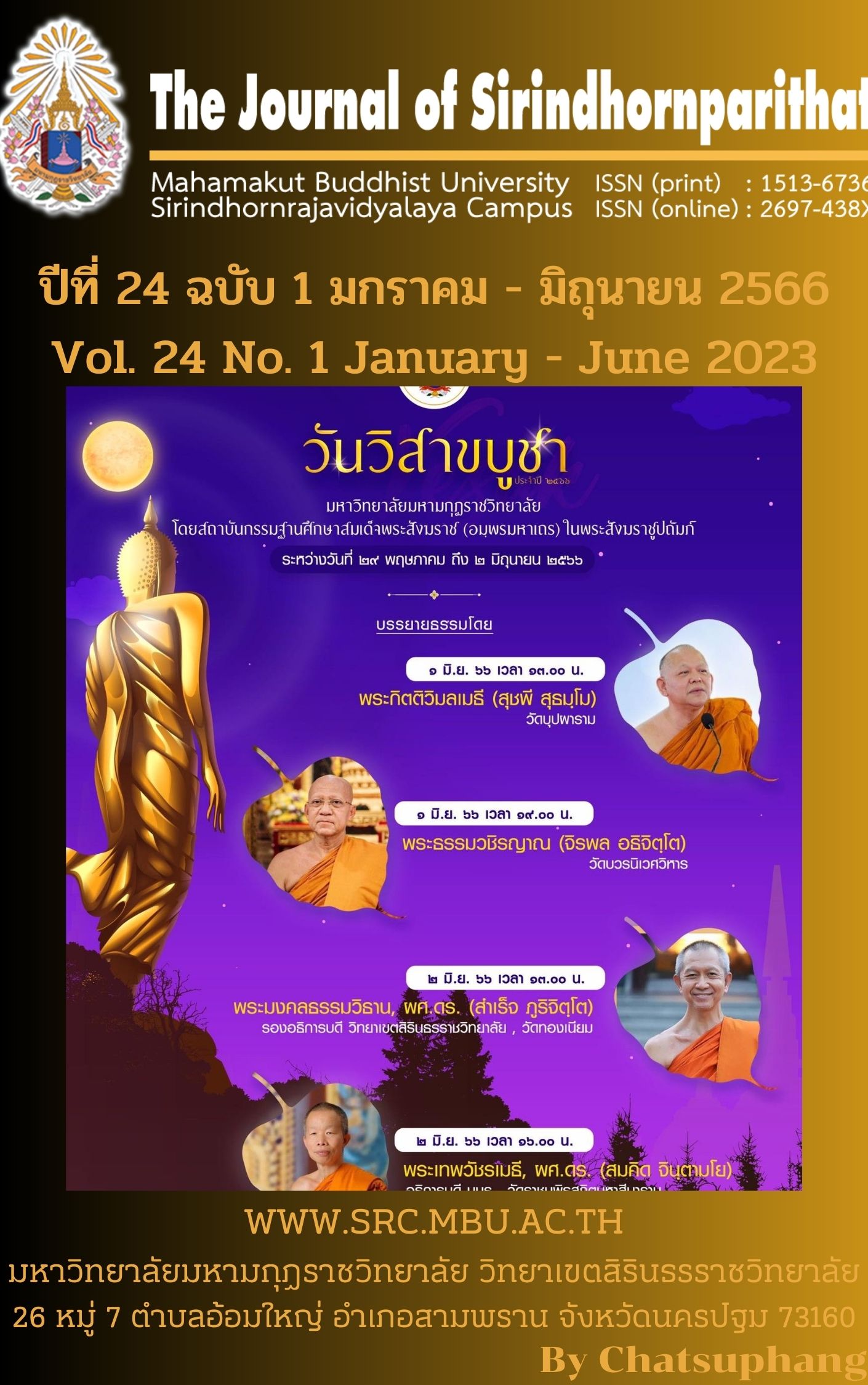The Development of a Competencies for School Administrators as Expert of The Ministry of Education
Keywords:
รูปแบบสมรรถนะ, วิทยฐานะเชี่ยวชาญ, ผู้บริหารสถานศึกษาAbstract
The objectives of this research were 1) to study the competencies of professional academic institution administrators, 2) to develop a model of professional academic institution administrators' competencies. The research methodology is a mixed method research using in-depth interviews to collect data. The target group used in the interview was 6 experts.consisting of experts from the Office of the Teachers Commission and Educational Personnel Provincial Education Director of Primary Educational Service Area Office Director of Secondary Education Service Area Office school administrators and an expert academic teacher acquired by selective selection The sample group used to answer the questionnaire was 44 Provincial Education Commissioners 137 directors of educational service area offices and 380 school administrators totaling 561 were drawn by stratified random sampling And the target group used to confirm the composition was 12 experts obtained by purposive selection. The research tools were interview forms, questionnaires, 5-level estimating scales, with a confidence level of 0.98 and the assessment form to confirm the components Statistics used in data analysis were mean, standard deviation exploratory component analysis and confirmatory component analysis. The research findings were as follows: 1. The competency of the administrators in schools as experts of the Ministry of Education were at a high level when classify of each item was between 4.28–4.80. 2. The competency model for the administrators in schools as experts by factor analysis with an exploratory analysis method, there were 4 components. The component 1 Management Capabilities. The component 2 Accepting and understanding individual differences. The component 3 Situational leadership had skill and knowledgeable. The component 4 Knowledge in teaching and learning management. 3. The confirmative component analysis (CFA) the competency model for administrators in schools as experts found that: The component 1 Management capabilities. It had 17 sub - variable. It has factor loading between 0.808- 0.906, eigenvalues =61.959, percent of variance= 23.237, Cumulative % variance= 23.237. The component 2 Accepting and understanding individual differences. It had 3 sub - variable. It has factor loading between 0.562-0.886, eigenvalues =3.013, percent of variance= 12.513, Cumulative % variance= 35.750. The component 3 Situational leadership had skill and knowledgeable. It had 3 sub - variable. It has factor loading between 0.824-0.907, eigenvalues =2.549, percent of variance= 9.998, Cumulative % variance= 45.748 and The component 4 Knowledge in teaching and learning management. It had 3 sub - variable. It has factor loading between 0.772-0.904, eigenvalues =1.702, percent of variance= 9.936, Cumulative % variance= 55.710. 4. Connoisseurship about Accuracy, Suitability, Possibility and Utilization were 100 % from 12 experts.
References
กาญจนชนก ภัทรวนิชานันท์. (2554). การวิเคราะห์องค์ประกอบสมรรถนะหลักเพื่อใช้ในการประเมินข้าราชการ : กรณีศึกษาสำนักงานคณะกรรมการข้าราชการครูและบุคลากรทางการศึกษา (ก.ค.ศ.). วิทยานิพนธ์ปริญญารัฐประศาสนศาสตรมหาบัณฑิต สาขาวิชานโยบายสาธารณะ บัณฑิตวิทยาลัย มหาวิทยาลัยศรีนครินทรวิโรฒ.
ชัยยนต์ เพาพาน. (2563). ผู้บริหารสถานศึกษายุคใหม่ในศตวรรษที่ 21. ค้นเมื่อ มกราคม 31, 2564, จาก http://www.conference.ksu.ac.th/file/20160809_2488101126.pdf.
ทิพวัลย์ อ่างคำ. (2561). สมรรถนะของผู้บริหารโรงเรียนมัธยมศึกษาในโครงการสู่ความเป็นเลิศมาตรฐานสากล สังกัดสำนักงานเขตพื้นที่การศึกษาภาคเหนือ. วิทยานิพนธ์ปริญญาศึกษาศาสตรมหาบัณฑิต สาขาวิชาบริหารการศึกษาและผู้นำทางการศึกษา บัณฑิตวิทยาลัย มหาวิทยาลัยสยาม.
นริศ มหาพรหมวัน. (2561). รูปแบบสมรรถนะผู้นำโรงเรียนเอกชนสู่มาตรฐานสากล. วิทยานิพนธ์หลักสูตรปรัชญาดุษฎีบัณฑิต สาขาผู้นำทางการศึกษาและการพัฒนาทรัพยากรมนุษย์ บัณฑิตวิทยาลัย มหาวิทยาลัยราชภัฏเชียงใหม่.
นิธิ เรืองสุขอุดม. (2563). สมรรถนะของผู้บริหารสถานศึกษา สังกัดสำนักงานเขตพื้นที่การศึกษาประถมศึกษาราชบุรี เขต 1. วิทยานิพนธ์หลักสูตรศึกษาศาสตรมหาบัณฑิต สาขาวิชาการบริหารการศึกษา มหาวิทยาลัยศิลปากร.
ประสิทธิ์ เขียวศรี. (2559). การนำเสนอแบบจำลองการพัฒนาภาวะผู้นำของผู้บริหารโรงเรียนที่บริหารโดยใช้โรงเรียนเป็นฐาน. กรุงเทพ : จุฬาลงกรณ์มหาวิทยาลัย.
พงศ์สิริ เกื้อวราห์กุล. (2562). สมรรถนะผู้บริหารกับคุณภาพการศึกษาของสถานศึกษาสังกัดสำนักงานเขตพื้นที่การศึกษาประถมศึกษาสมุทรสาคร. วารสารการบริหารการศึกษา มหาวิทยาลัยศิลปากร. 10(1) : 86-102.
พิชามญชุ์ ลาวชัย. (2562). สมรรถนะของผู้บริหารกับการบริหารงานบุคคลในสถานศึกษา สังกัดสำนักงานเขตพื้นที่การศึกษาประถมศึกษาสมุทรสงคราม. วิทยานิพนธ์หลักสูตรปริญญาศึกษาศาสตรมหาบัณฑิต สาขาวิชาการบริหารการศึกษา คณะศึกษาศาสตร์ มหาวิทยาลัยศิลปากร.
สุรศักดิ์ ปาเฮ. (2556). การพัฒนาวิชาชีพครูสู่ยุคปฏิรูปการศึกษาในทศวรรษที่ 2. ในเอกสารประกอบการประชุมสัมมนาทางวิชาการ การพัฒนาครูทั้งระบบตามยุทธศาสตร์การปฏิรูปการศึกษาทศวรรษที่ 2. แพร่ : สำนักงานเขตพื้นที่การศึกษาประถมศึกษาแพร่ เขต 1 - 2.
ศักดิ์ไทย สุรกิจบวร. (2559). 9 สมรรถนะสำคัญของผู้บริหารมืออาชีพ. ดุษฎีนิพนธ์ปริญญาศึกษาศาสตรมหาบัณฑิต สาขาวิชาบริหารการศึกษา บัณฑิตวิทยาลัย มหาวิทยาลัยราชภัฏสกลนคร.
อนุสิทธิ์ นามโยธา. (2556). การพัฒนารูปแบบความสัมพันธ์โครงสร้างเชิงเส้นของสมรรถนะผู้บริหารสถานศึกษาที่ส่งผลต่อประสิทธิผลของโรงเรียน. วารสารสมาคมนักวิจัย. 18(3) : 20-29.
Bottoms, G. et al. (2003). “Good Principals are the Key to Successful School: Six Strategies to Prepare More Good Principals, Southern Regional Education Board, Atlanta.” Dissertation Abstracts International. 4(31) : 33-A.
Danilo V. (2016). Towards Enhancing the Managerial Performance of School Heads. International Review of Management and Business Research.
Lisa Larson. (2012). Evaluating Minnesota’s School Principals. Accessed September 9, 2017, from http:// www.house.mn/hrd/hrd.htm.
Smith, S. C. and Purkey, M. S. Effective School. (2008). quoted in Hoy, Wayne K. and Miskel, Cecil G. Educational Administration : Theory, Research, and Practice. Singapore, McGraw-Hill Education.

Downloads
Published
Issue
Section
License
Copyright (c) 2023 Mahamakut Buddhist University

This work is licensed under a Creative Commons Attribution-NonCommercial-NoDerivatives 4.0 International License.
บทความที่ได้รับการตีพิมพ์เป็นลิขสิทธิ์ของ มหาวิทยาลัยมหามกุฏราชวิทยาลัย วิทยาเขตสิรินธรราชวิทยาลัย
ข้อความที่ปรากฏในบทความแต่ละเรื่องในวารสารวิชาการเล่มนี้เป็นความคิดเห็นส่วนตัวของผู้เขียนแต่ละท่านไม่เกี่ยวข้องกับหาวิทยาลัยมหามกุฏราชวิทยาลัย วิทยาเขตสิรินธรราชวิทยาลัย และคณาจารย์ท่านอื่นๆในมหาวิทยาลัยฯ แต่อย่างใด ความรับผิดชอบองค์ประกอบทั้งหมดของบทความแต่ละเรื่องเป็นของผู้เขียนแต่ละท่าน หากมีความผิดพลาดใดๆ ผู้เขียนแต่ละท่านจะรับผิดชอบบทความของตนเองแต่ผู้เดียว



